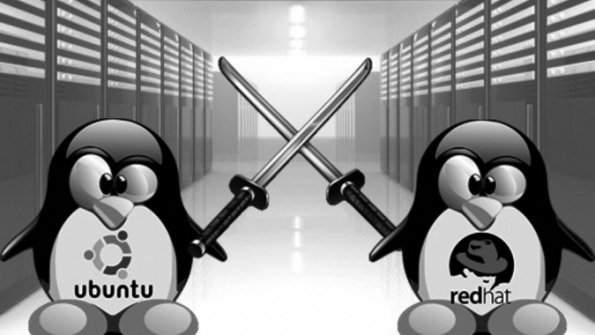Why is Canonical (Ubuntu's backer) promoting the new support that Ceph, the distributed storage system for Big Data from Inktank, now offers for Red Hat Enterprise Linux?

Here’s an interesting bit of under-the-radar news from the channel: Canonical, on its official blog, is promoting the latest release of the Ceph distributed storage system, titled Cuttlefish. Why is that noteworthy? Because the post doesn’t mention Canonical’s Linux distribution (Ubuntu) at all, and instead focuses in large part on what Ceph is doing for Red Hat. Is Ceph that important to the open-source and Big Data ecosystems that it can bring competitors so selflessly together like this?
The post reads mostly like a standard press release about Ceph Cuttlefish (though it’s not actually the official release that Inktank, the company behind Ceph, distributed last week to the press) and describes new features in the latest version of Ceph. Those include new deployment and administration functionality, as well as — and this is the kicker — “Fully tested RPM packages for Red Hat Enterprise Linux and derivatives, available on both the ceph.com repo and in EPEL (Extra Packages for Enterprise Linux).”
If you’re running Ubuntu, those Red Hat packages will be of little use. Ubuntu can’t install RPMs (well, technically speaking, if you’re geeky enough there are ways to do it, but don’t expect to see much of them in enterprise production environments). And even if it could, this news still wouldn’t interest many Ubuntu server administrators, since Ceph packages for Ubuntu have already been available for some time.
So why is Canonical using its official blog — where posts normally appear at the rate of only one or two per month — to highlight a Ceph release that introduces new support for Red Hat while changing little in the Ubuntu world?
It’s hard to say, but the company’s eagerness to promote Ceph, even under these circumstances, may reflect the crucially central role Canonical employees expect Ceph to play in the evolution of open-source Big Data tools. Canonical wants to be sure the community is aware of Ceph’s momentum, even if, in this case, part of it is targeted at Red Hat.
It’s also worth recalling here that Mark Shuttleworth, the founder of Ubuntu and former CEO of Canonical who now occupies a general leadership role at the company, bet $1 million of his own money on Inktank and Ceph last fall. He clearly wants to see the technology succeed, and believes it can, no matter which big-name Linux vendors it cozies up to.
About the Author(s)
You May Also Like


